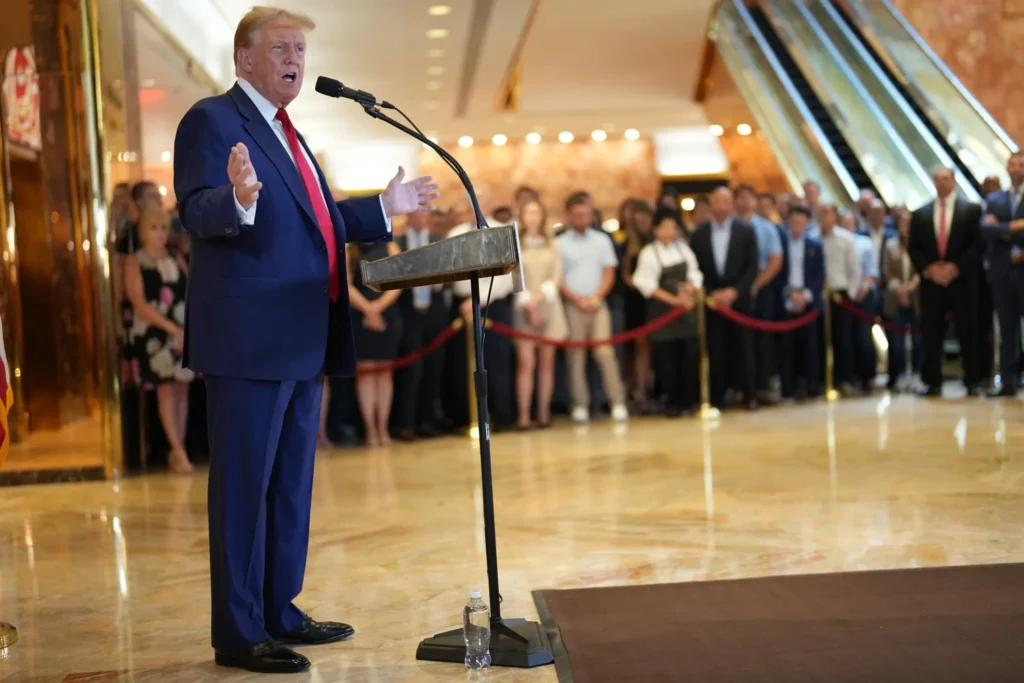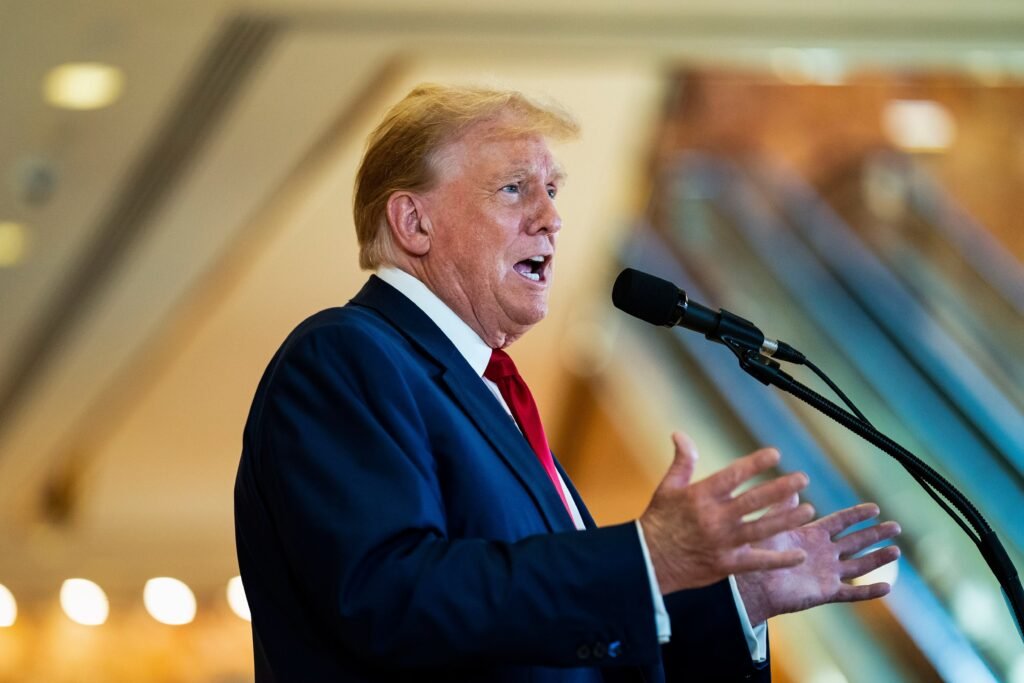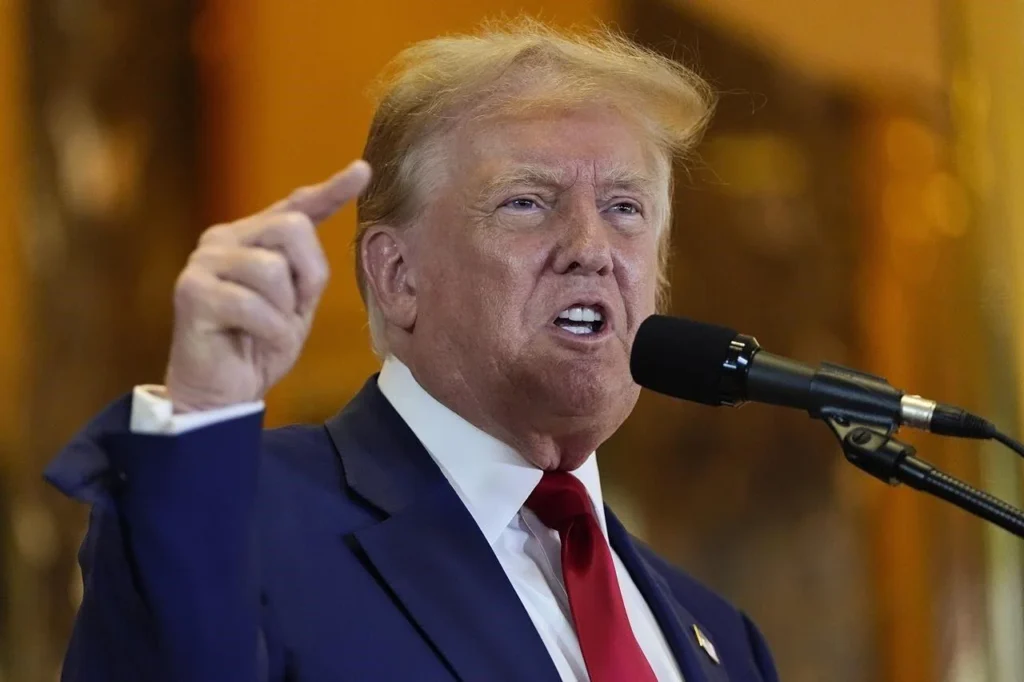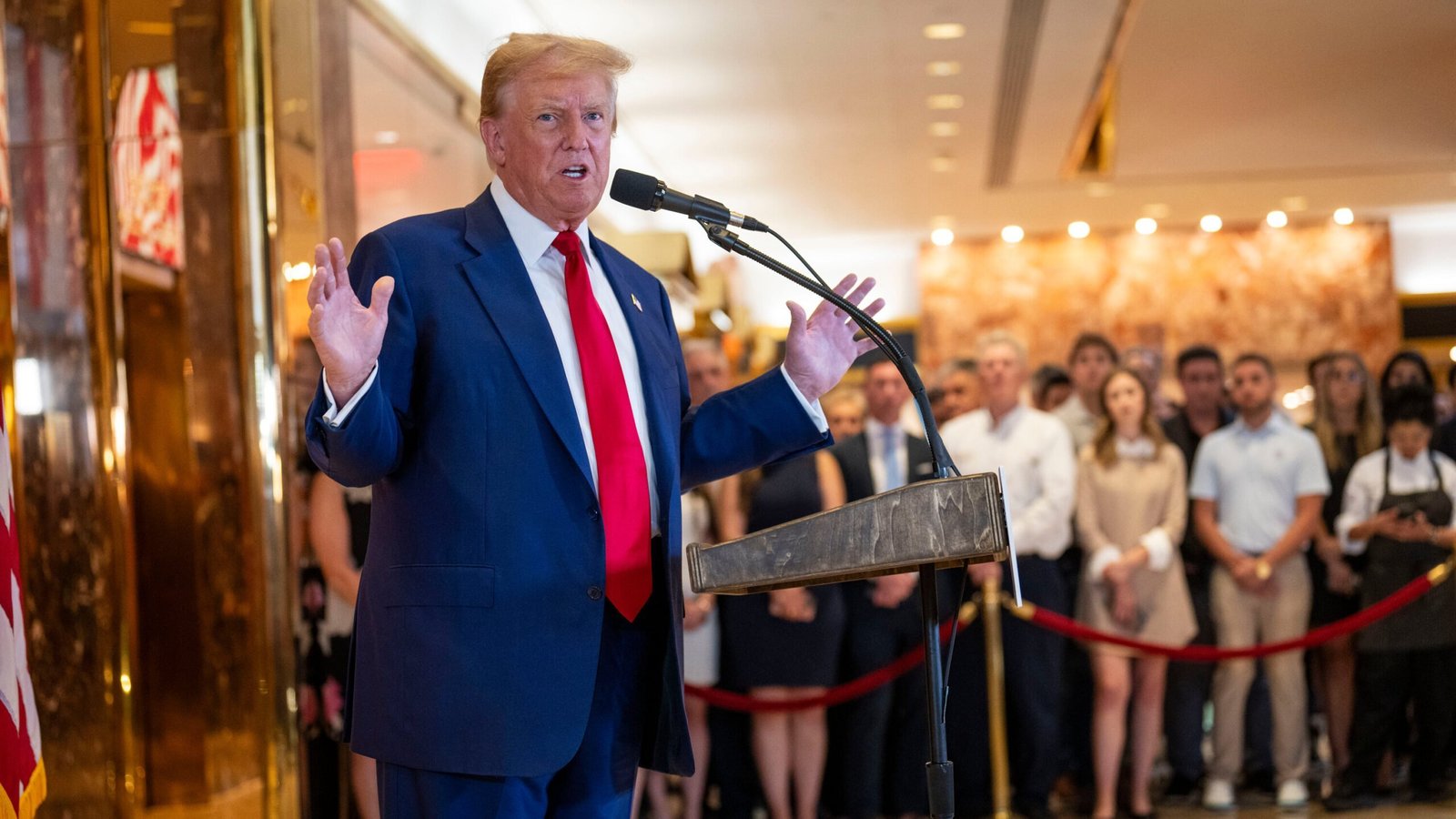You’ve gotta hand it to the guy, he just doesn’t know when to quit. Our former president’s nonstop accusations against the FBI are getting him into hot water once again. The prosecutors handling the classified documents case want the judge to put a sock in it, arguing Trump’s claims about the bureau are just downright dangerous. This isn’t the first time they’ve tried to muzzle him, but team Trump remains defiant. The stakes feel higher than ever this go around though. With Trump firing up the rhetoric on the campaign trail, the FBI itself says it’s facing a rapidly escalating number of threats. The way things are headed, this showdown between the prosecutors and Trump’s lawyers could turn into a nail-biter. Sit tight to see if the judge grants the gag order, shutting down Trump’s false allegations before things spiral out of control.
Prosecutors Argue Trump’s Comments Endanger FBI Agents
The prosecution argues that Trump’s false claims about FBI agents involved in investigating him are putting law enforcement officials in real danger. They say his rhetoric wrongly suggests FBI agents were part of some “deep state” plot to assassinate him, exposing them to violent threats from Trump’s supporters.
His irresponsible comments have real-world consequences, prosecutors contend. They point out that one man who believed Trump’s lies about the FBI recently attacked an FBI office, armed with an assault rifle. “There is a real risk that individuals will continue to be incited by Trump’s statements to threaten or harm FBI agents,” they told the judge.
Trump can’t be allowed to continue attacking and endangering public servants just to rile up his base, prosecutors insist. They’re again asking the judge to issue a gag order barring Trump from making further false statements about the FBI in connection with the case.
“Unchecked, Trump’s rhetoric will continue to inspire violence against law enforcement,” prosecutors argue. They say a gag order is necessary to protect agents and allow the case to proceed fairly, without the threat of intimidation.
Trump’s lawyers counter that a gag order would violate his right to free speech. But prosecutors say the First Amendment is not absolute – it does not protect speech that incites violence or threatens public safety. They argue Trump’s lies about the FBI easily cross that line.
With the stakes so high, prosecutors are determined to get a gag order in place. The safety of FBI agents hangs in the balance, they say, as long as Trump’s toxic claims go unchallenged. A gag order may be an extraordinary measure, but these are extraordinary circumstances that call for decisive action. The security of law enforcement officials must come before one man’s selfish drive for attention and applause.

A History of Trump’s False Claims About the Mar-a-Lago Documents Case
You’ve probably heard Trump’s outrageous claims that the FBI “broke into” his home when they executed a legal search warrant at Mar-a-Lago in August. The truth is, the FBI had strong evidence that highly classified documents were improperly stored at the resort, and they followed proper procedures to recover them.
The Search Warrant
The FBI obtained approval from a federal judge to search specific areas of Mar-a-Lago for classified records that should have been turned over to the National Archives. Contrary to Trump’s claims, the FBI did not “break in” or conduct an unlawful search. They were simply following the rule of law and recovering stolen government property.
False Accusations of “Planting” Evidence
Without any evidence, Trump accused the FBI of “planting” classified documents at Mar-a-Lago to frame him. These baseless conspiracy theories undermine public trust in law enforcement and endanger FBI agents. As the prosecutor said, Trump’s falsehoods could “inflame tensions and inspire violence against FBI agents.”
A History of Mishandling Classified Information
This wasn’t the first time Trump was reckless with sensitive data. As president, he shared classified details with Russian officials and tweeted a photo from a spy satellite. His haphazard handling of classified records at Mar-a-Lago posed real risks to national security according to intelligence officials.
The facts show that Trump has a long track record of dishonesty and carelessness with classified information. His irresponsible behavior and false public statements threaten to undermine the integrity of the justice system. Until Trump takes responsibility for his actions, the risks to national security and public trust will persist.

The Risks of Undermining Public Trust in Law Enforcement
The actions of police officers have serious consequences that extend far beyond any single arrest or use of force. When officers abuse their power or authority, it undermines the public’s trust in the legitimacy and integrity of law enforcement as a whole.
Lack of Cooperation
People who don’t trust the police are less likely to report crimes or provide information to aid investigations. This makes it much harder for officers to do their jobs and ensure public safety. Minority groups in particular, who tend to have higher rates of negative interactions with police, may avoid contacting law enforcement altogether due to fear or past experiences of discrimination and abuse.
Challenging Police Authority
As trust in police declines, people become more likely to challenge or disobey the instructions of officers during encounters or Emergency situations. This can escalate tensions, endanger safety, and lead to the use of force in response. Some may even deliberately provoke police to try and capture evidence of abuse or misconduct.
Long-Term Resentment
When people feel that police cannot be relied upon to act with fairness and integrity, it breeds longer-term resentment and anger towards law enforcement. This resentment is passed on to younger generations, creating a cycle of animosity and distrust that is hard to break. Marginalized groups who face higher rates of police violence and systemic racism tend to develop deep-rooted distrust over many years of damaging experiences.
Restoring trust in law enforcement requires a sustained commitment to transparency, accountability and meaningful reform. Simply prosecuting officers for major acts of misconduct is not enough. There must be a broader cultural shift towards policing that is respectful, just and responsive to the needs of the communities being served. When the public believes that police can be trusted to uphold civil rights and protect the vulnerable, cooperation and support for law enforcement will follow.
What This Means for the Ongoing Legal Battle
The special counsel’s renewed request for a gag order on Trump shows how desperate prosecutors are to limit the damage from his reckless claims. ###If granted, it would prohibit Trump from making public statements about the classified documents case that could put FBI agents and witnesses at risk.
Prosecutors argue that Trump’s false allegations about FBI misconduct are endangering law enforcement officials involved in investigating him. His baseless claims that the search warrant for Mar-a-Lago was “unwarranted and unnecessary” have already led to increased threats against the FBI.
A gag order may be the only way to contain Trump’s lies and protect those pursuing justice against him. However, it also risks portraying Trump as a “victim” of an overzealous legal system trying to silence him. His supporters will likely see any gag order as further evidence of a “witch hunt” against their leader.
The judge in this case faces a difficult decision with many trade-offs to weigh. Gagging a former president is an extraordinary step, even if his rhetoric has crossed ethical lines. At the same time, the safety of law enforcement officials must be prioritized in an increasingly volatile political climate.
If a gag order is granted, it would deal a major blow to Trump’s attempts to spin legal troubles into political fuel. No longer able to freely spread misinformation about the classified documents case, his claims of victimhood may ring hollow even to ardent followers. However, Trump and his allies will likely double down on accusations of censorship and judicial overreach.
The special counsel’s motion highlights how Trump’s lies have spiraled out of control, creating a scenario where the right to free speech must be balanced against the duty to protect. As his many legal cases progress, this crucial question of how to handle a former president who spreads dangerous fictions may arise again and again. There are no easy answers, only imperfect solutions in imperfect times.
Trump’s Response and What May Come Next

Trump has denied all allegations against him, calling the charges a “witch hunt” and claiming once again that he is the victim of a conspiracy by the “deep state” and the “radical left.” ###His allies are already calling for limits on the independence of the Justice Department and rallied around Trump.
You can expect Trump and his supporters to continue their verbal attacks on the FBI, the Justice Department, and the special counsel. ###Trump may take to platforms like Truth Social to spread misinformation and whip his base into a frenzy. His most ardent followers will likely threaten violence against government officials involved in the case.
Prosecutors have again asked the judge to issue a gag order to prevent Trump from making false public statements that could endanger FBI agents and officials. ###If granted, Trump would be barred from discussing classified details of the case publicly. However, Trump may see such an order as an attack on his freedom of speech and use it to further stoke outrage.
The charges against Trump are serious felonies, so the case will likely drag on for months or even years.
Trump’s legal team will employ delay tactics to push back the trial date as long as possible. They may claim Trump’s health prevents him from attending lengthy court proceedings. When the trial does begin, expect Trump’s lawyers to mount a vigorous defense, attacking the credibility of witnesses and evidence.
No matter the outcome, Trump’s most fervent supporters will claim he is innocent and the victim of a corrupt system. ###Moderate Republicans may start to distance themselves from Trump if the evidence against him is compelling. However, the GOP is still very much under Trump’s sway, so Republican elected officials are unlikely to speak out strongly against him.
The classified documents case adds yet another chaotic chapter to the turmoil of Trump’s time in office and beyond. His reckless behavior and disdain for the rule of law continue to pose a threat to American democracy. Only time will tell if justice and accountability can prevail.
Conclusion
So there you have it. The prosecutors keep pushing to silence Trump’s allegations against the FBI. Whether you think he’s right or not, his words do hold power and impact. As citizens, we need to think carefully about the consequences – intended or not – of the things we say. And those with major platforms have an even greater responsibility. It’s a tough balance between free speech and public safety. But for now, the ball is in the judge’s court on deciding if a gag order is warranted. The stakes feel high on both sides. One thing’s for sure – tensions continue to escalate in this high-profile case. What happens next remains to be seen. We’ll all be watching closely.






















